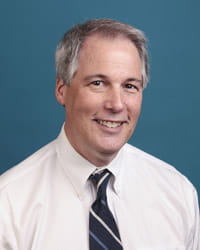Mayerson Collaborations Drive Insights Into Childhood Adversity
The Mayerson Center for Safe and Healthy Children created a new key collaboration this year with its colleagues in the Division of Biostatistics and Epidemiology to co-explore the effects of - and solutions to - childhood adversity.
“As a division, we are most excited about the research focus we have developed and are expanding that revolves around childhood adversity and toxic stress,” says Robert Shapiro, MD, director of the center’s Child Abuse Team.
Living in an adverse, unsafe, or unstable environment can lead to the release of stress hormones throughout the body and developing brain of a child. If a child does not have the resources to effectively cope with this stress, the prolonged release of these hormones can have a toxic impact. This “toxic stress” can cause harmful physiological changes and damage to the regions of the brain essential for memory, learning, and behavior. These changes can alter a child’s capacity to learn and reason, to develop healthy attachments and behaviors, and to navigate social relationships. A child may also adopt risky behaviors to help them cope with the stress that may compromise their health. Childhood adversity has been strongly associated with an extensive list of health problems in adulthood.
The Mayerson Center is teaming up with the Division of Biostatistics and Epidemiology to design and conduct studies examining the biological processes of how childhood adversity disrupts normal brain development, the impact of parental adverse childhood experiences on child development, and the prevention, detection, and early intervention for adversity in families.
The Mayerson Center has partnered with local pediatricians to begin adversity screening and brief interventions in primary care practices to identify and address social risk factors in families. The center also has created a new community-wide initiative called Joining Forces for Children to build a public health response system to childhood adversity.





